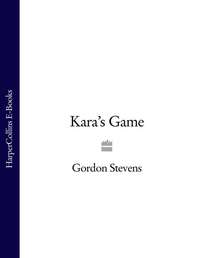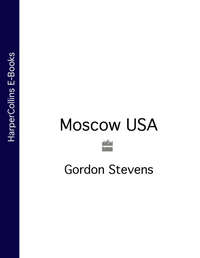
Полная версия
Provo
It was sheer, bloody unadulterated luck, Halloran would reflect later, that he had offered to work overtime that evening, that for the first time in his life he was in the right place at the right time. That, above all, it was he who happened to be standing next to the constable when the call came in and was almost discarded in the cold and calculated chaos between the reports of bomb warnings from the journalists and switchboards receiving them.
‘What is it?’
Halloran had been in the RUC for eighteen years, twelve of them as a sergeant, and – according to those close to him – would have made inspector, probably higher, if he had not voiced his opposition to certain aspects of Northern Ireland policing in the eighties quite so forcefully.
‘Woman reports something funny with her next-door neighbours. No reply but she knows they’re at home.’
‘How?’
‘Telly’s on, she can hear it, and the curtains are drawn.’ A burglary or a domestic, his shrug and the tone of his voice suggested, something CID could deal with in the morning.
‘What else?’
‘The kids aren’t playing in the street as normal.’
‘Who’s at home?’ It was instinct.
‘The wife and kids. The husband left with someone else twenty minutes ago.’
Something the other man had missed, Halloran began to think, something the other man’s lack of years had not picked up.
‘Give me the name and number. I’ll speak to her.’
The Transit had dropped Tommy from work as usual, Moira Sheehan told him. Half an hour later he had left with the other man. Marie hadn’t brought the children out to play as she normally did. When she had knocked on the front door there was no reply and the back door was locked.
‘But you’re certain they’re in?’
‘Like I said, I can hear the television.’
‘And the curtains are drawn?’ The evening was still light – no need to draw the curtains.
‘Yes.’
‘What about at the back?’
‘No, but the kitchen’s empty.’
Halloran knew when not to ask a question.
‘Funny though. The dinner’s still on the table.’
‘You said Tommy left with another man. Did he come home with Tommy?’
‘No, he and the others came just after.’
The alarm bells began to ring.
‘How many others?’
‘Three of them altogether. Then there were the men in the car.’
Three in, one out with Tommy. Two still inside with Tommy’s wife and children. ‘What’s Tommy do for a living?’
There was a commotion around him, another series of bomb calls being reported.
‘He drives a digger.’
‘Who for?’
‘Ellis and Knight.’
Oh, Christ. Halloran knew what was happening. Oh Jesus bloody Christ.
The building site was deserted, the gate secured by a padlock. Rorke snapped through the chain with a set of bolt-cutters, pulled back the gate, and the Sierra drove through and parked behind the huts and Portacabins. Two minutes later a Transit, sprayed the same colour as those used by Ellis and Knight, drove in, a Cavalier close behind it.
There were three men in the Sierra, Reardon counted automatically, plus two in the Transit and four in the Cavalier, all armed with pistols or submachine guns.
‘Keys?’
Behind them a gunman closed the gates and hung the padlock and chain in place.
‘In the agent’s office.’
Access was easy: a crowbar against the door, the lock holding but the wood around it splintering, then giving way. The office was neat and organized, a filing cabinet in one corner and a desk against the far wall, the site plans and charts stacked neatly on it. Beside the cabinet was a line of hooks with keys hanging from them.
‘Which one?’ Rorke was always behind him.
If he did what they said, Reardon thought, then at least Marie and the kids might live. His stomach churned with fear and he fought to stop his hands shaking. He took the keys and stepped outside. The digger was parked forty yards away, in the open. Rorke followed him across the site. Instinctively Reardon bent down to examine the underside of the vehicle for bombs.
‘I don’t think we need bother about that tonight, Tommy.’
He unlocked the cab, started the motor, and drove the digger to the side of the Transit.
‘How’s the fuel tank?’ Rorke’s attention to detail was as meticulous as McKendrick’s planning.
‘Half-full.’
‘Check it,’ Rorke ordered.
The back doors of the Transit were open. Two of the gunmen placed a plank against the rim of the floor, rolled out a forty-gallon drum, two hundred pounds of Semtex packed inside, then manhandled it into the bucket at the front of the digger. It was almost dusk.
‘Time to go, Tommy boy.’ Rorke pulled a canvas sheet over the barrel. ‘The Crum and no stopping. Remember Marie and the kids.’ He saw the look on Reardon’s face. ‘Don’t worry, you’ll have plenty of time to jump dear.’ No point telling him the truth, no point telling Reardon that the IRA man in the first of the two escort vehicles would detonate the explosives the moment the digger rammed the gate.
The surveillance helicopter hovered in the sky and the army patrols swung into Beechwood Street and the terraces on either side, the Green Jackets piling out and knocking on the doors, beginning the census checks – the patrols leapfrogging house to house, the RUC policemen accompanying them.
‘Dermot Wilson is registered here.’ It was the second lieutenant’s first Northern Ireland tour. ‘Is he in? Where is he? What’s he doing tonight?’
The woman slammed the door in his face.
‘Michael Sullivan.’ It was the officer with the second patrol. ‘Does he still live here? Is he in Belfast? When did you last see him?’
It was no more nor less than the families in the street expected: the Brits putting on the pressure on Orange Day, the bastards letting them know who was boss. Piss off, Sullivan’s wife began to say. The patrol pushed past her and into the hallway, searching the rooms, downstairs, upstairs. Sullivan was different, Sullivan was on the security computer as a known Provo. His wife was shouting and his children screaming. The patrol hurried past them and out of the house.
The men in the patrol knew each other, had trained with each other, become accustomed to patrolling the streets together. Except for the two men who had joined them half an hour before and who had sat silently with them as the armoured personnel carrier swung into Beechwood Street.
The first patrol was already pushing its way in to the next doorway, the second lieutenant still questioning the family in the hallway and the rest of the patrol searching the rooms upstairs and downstairs, running down the stairs and pushing past, out into the street and to the next address on the list. The soldiers moving quickly and confusingly.
Six soldiers into number 47, only four out. Two – the two who had joined them thirty minutes before – through the trapdoor on the upstairs landing and into the roof space.
The patrols were still ten houses away from Tommy Reardon’s. Abruptly the soldiers climbed back into the vehicles and the convoy screamed away as quickly and apparently as predictably as it had arrived.
The woman who left the slightly battered Opel by the shops three corners from Beechwood Street was in her late twenties, five feet six inches tall, with brown hair – Irish hair her mother called it – and thin attractive features. She spent the next fifteen minutes observing both the alleyway which ran behind Reardon’s house, and the street itself. By the time she returned to the car it was positioned at the top of Beechwood Street.
Cathy Nolan had been born in Northern Ireland. Her family religion was Protestant, though she herself had slipped into something bordering atheism. For four years she had served in the Women’s Royal Army Corps, the last two of them in Germany, where she had volunteered for what was described – officially, at least – as an adventure training course, but which was a front set up by the talent-spotters and run by an SAS officer from the NATO Long Range School near Lake Constance. At the end of the course she had been taken aside and the suggestion made that she might like to consider Special Duties. Three months later she had been given a new name and sent on the ten-week SAS course at Pontrilas for women undercover agents. At the end of that period, and with yet another identity, she had begun work with the 14th Intelligence Corps in Northern Ireland, based in Lisburn. For the past month she had been seconded to E4A, the RUC undercover surveillance department. The coat she wore was from Next, green but slightly faded, all the pockets with zips which she herself had added so that nothing would fall from them, and the 9mm automatic pistol she wore in the waist holster beneath the jacket was a Browning Hi-Power.
‘All quiet?’ Brady sat in the driver’s seat. He was slightly older, fair hair and lean face.
The microphone in the car was voice-activated, the aerial concealed, and the two of them wore earpieces. Brady also wore a Browning Hi-Power in a waist holster on his left side, a Heckler and Koch MP5K lay on the floor between the driver’s seat and the door, covered by a folded newspaper, and the two-man back-up car was three streets away.
‘So far.’
Someone was being greedy – she had first felt the unease midway through the briefing, felt it again now. The SAS were dealing with the gunmen inside the house, plus the Provo team escorting Tommy Reardon and his digger. Assuming they found him in time. E4A were assigned to tailing any IRA men who might show during the operation. The two operations fine and logical, except they were being run together. And that was the problem. Either the SAS should be inside the house, or E4A should be waiting outside. Not both. Bloody typical, she thought. Different bosses playing out the same game. Herself and Brady in the middle.
Noel Ellis had been notified thirty minutes before and had telephoned RUC headquarters to confirm. The Special Branch man showed his identification and came straight to the point.
‘An employee of yours, Tommy Reardon. We need to know where he’s working.’
Ellis and a schoolfriend, Billy Knight, had formed the building firm twenty years before. Ellis was a Catholic and Knight a Protestant. When the other man had died two years ago Ellis had deemed it fit not to change the name of the firm.
‘Why?’ He poured himself a Black Bush and offered the policeman one. ‘He’s a good worker, took him on myself. Not the sort to get mixed up with the wrong people. Not in trouble, is he?’
The SB man declined the drink. ‘What site’s he working on?’
‘Short Street, by the docks. I wouldn’t normally know, but I was there this afternoon.’
‘And he’d leave his digger there?’
Ellis began to understand. ‘Yes.’
‘Can I use the phone?’
The roof space was dark and dusty. Haslam and Phillips moved carefully, picking out the rafters in the beams of the streamlight torches and transferring their weight slowly and exactly, making no noise and counting the number of houses over which they passed. Each carried a Browning Hi-Power, with spare magazines in pouches on their belts. Each wore a remote earpiece, the microphones of their Mitre radios concealed and an induction loop passing through their clothing to the hand pressure switch by their wrists. Any messages they sent would be via the car parked three streets away, the car on remote and the message relayed to control, the net they were using dedicated to the operation and verbal signals kept to a minimum in case the IRA intercepted them or the people in the houses heard them. After eighteen minutes they came to the trapdoor above the upstairs landing of Tommy Reardon’s house. Haslam clicked the switch three times – the signal to the man on listening watch that they were in position – and waited.
In ten minutes he would die, Reardon knew. His palms were wet with sweat, and the fear drummed through his head and churned in his stomach. He followed the Sierra out of the docks area, under the motorway flyover and up Brougham Street. The route was as carefully planned as the pick-up: the building site was less than a mile and a quarter from the Crum, and where possible the route wound its way through back streets – all Catholic – with the houses on either side protecting the convoy from the eye in the sky. Only at three points would the digger be exposed, and the last of those was on the hundred-yard run-up to the prison itself.
The convoy filtered left along North Queen Street, the sound of the digger engine drowning the whine of the surveillance helicopter hovering high in the sky half a mile away above the Falls, then turned third right into Spamount Street. The terraced houses on each side were red brick and spotlessly clean, yet in the streets to the right many of the houses were boarded up and painted with INLA slogans.
McKendrick’s Granada was waiting on the corner of Lepper Street. As the convoy approached he slid into the passenger seat. Rorke left the Sierra, joined him, and the convoy slipped past, along Lepper Street, the Republican slogans daubed on the walls and the sides of the tower blocks to Reardon’s left. Five minutes to go, he knew, perhaps six or seven if he managed to slow down. He turned right into Churchill Street and tried to control the trembling.
‘Any problems?’ McKendrick sat back as Rorke spun the Granada round and headed for Beechwood Street. One last check before they cleared the area, he decided.
‘Should there be?’
The Gazelle was half a mile from the convoy, the surveillance at an oblique angle to avoid detection. ‘Red Nine, Yellow.’ Communication from the helicopter was kept to a minimum, call signs omitted and codenames for locations pre-set.
The message was relayed to the two Macrolan Land-Rovers: Red Nine the code for the location where the digger had been spotted – and from this the suggestion that the Crum was the probable target – and Yellow the code for the fact that vehicles were following the digger. And that was the problem, the SAS commander in charge of the ambush knew. Because the explosives which Tommy Reardon was carrying were probably on a remote firing system – possibly others, but certainly a remote device as insurance in case the others failed or Reardon decided to make a run for it. So to save Reardon they would have to take out the command vehicle. But there was no guarantee that the vehicles in front of or behind Tommy Reardon’s digger were part of the IRA operation.
McKendrick and Rorke saw it even before they passed the car. Two people sitting doing nothing at this time of night. Either the front car for an undercover operation, in which case it wasn’t connected with Tommy Reardon and there would be a back-up three hundred yards away, or itself the back-up car, in which case the operation might concern Reardon.
Rorke drove past, ignoring the next turning left which led to Beechwood Street. Only when he was a hundred yards on did he turn left, then left again, and accelerate up the road which crossed Beechwood Street twenty yards from the top and which ran parallel to the one on which the back-up vehicle was parked. Fifteen yards from the junction with Beechwood Street he stopped, then he and McKendrick left the vehicle and strolled casually round the corner.
The car was parked twenty yards away, the man and woman in the front seat and facing away from them. So what the hell was going on? McKendrick tried to work it out. Was the stake-out on Reardon’s house, or was it just coincidence that the undercover car happened to be parked seventy yards from where Reardon’s wife and children were being held? If the subject was Reardon, then what did the bastards know about the operation? But the fact that there was a car meant that even if the security forces suspected that something was up with Reardon, they didn’t know what. Because if they did know they wouldn’t have revealed that knowledge by putting an undercover car so close to the house.
He nodded at Rorke and thumbed the safety off the Walther.
They’d been in position too long, both Brady and Nolan knew, shouldn’t be sitting in the vehicle like this. Should have left it and be standing on the street, lost in a doorway. Shouldn’t be here in the first place. Except orders were orders.
‘Oh shit.’ He slipped the car into gear, released the handbrake, and held the car on the foot brake. ‘McKendrick’s behind us.’ He warned Nolan, the message passed to control via the vehicle’s voice-activated microphone. ‘Rorke’s with him.’
Back-up in now, Nolan knew control was ordering. Except that was what control was not doing. Because if control ordered the back-up car in then it would confirm that they were a forward stake-out, but if control didn’t send the back-up in then she and Brady were in trouble. Therefore she and Brady had to react to protect themselves, but the moment they reacted they would blow the operation to rescue Tommy Reardon’s wife and family.
Haslam heard the clicks on his earpiece. He eased up one edge of the trapdoor, Phillips covering him. Haslam opened the trap a fraction more. The only light came from below and the only sound was that of a television. He dropped through the hole and on to the landing, Phillips still covering him, took the Browning from the holster and covered the stairs as Phillips dropped from the roof space.
Two of the doors off the landing were closed and the third ajar. Haslam slid through the open door, clearing it quickly, and swept the room with the torch, holding it in his left hand and away from his body, the Browning in his right. It was a child’s bedroom, bunk beds against one wall, a handful of toys on the floor, and empty. They cleared the other rooms, left the landing, moved down the stairs, and checked that the kitchen at the rear was empty. The door of the lounge was closed, from inside they heard the canned laughter from the television.
Rorke reached the front of the car as McKendrick drew level with the driver’s door. The window was open. In one movement he stopped, bent and levelled the Walther at the man in the driver’s seat.
‘Wrong time, wrong place.’
Brady looked round and appeared to freeze, face suddenly white.
Rorke stepped in front of the car, the CZ pointed at the windscreen.
She and Brady had talked it through, so that each knew what the other would do and say, so that their movements would co-ordinate, so that one would create a diversion while the other went for his gun, so that the driver could reach the back-up weapon. But Brady’s hands were on the steering wheel so that he couldn’t go for his gun, and if she went for the Browning in her own waist holster they would see. Which left the MP5K on the floor by the driver’s seat. But to get to it she would have to move across Brady’s body. And to do that she would need a cover.
‘Fuck you. You’re setting me up, you bastard.’ She directed her fear and anger at the driver. ‘Not me.’ She turned to McKendrick. ‘I’m not with him. I’m nothing to do with this.’
She turned and tried to leave the car. Out of the passenger door or over the driver. Appeared to panic.
‘So what’re you doing if you’re not with him?’ McKendrick enjoyed the moment.
‘What the fuck do you think I’m doing with him?’ He picked me up in Amelia Street ten minutes ago: the implication and language were clear. Not if you’re in the front seat with him: she saw the expression in McKendrick’s eyes. Not if you’ve still got your pants on and your legs together.
‘Not here.’ McKendrick enjoyed the agony of the target before the kill. I know you. He tried to remember the driver’s face.
‘Ten quid. You must be joking.’
Finish it now and get out, part of McKendrick’s brain told him. Enjoy it ten more seconds. ‘Better give a condemned man his last wish, then.’
She couldn’t, Nolan suddenly knew. She needed the gun but couldn’t do what she had to do to get to it.
‘Fuck off.’
McKendrick swung the Walther at Nolan. ‘Do it.’
She wouldn’t be able to. She leaned forward and slightly down, and undid Brady’s trousers. The back-up had better come in carefully: too slow and they’d be too late, too fast and the bastards would see. And even if she could reach the MP5K it would only be with her left hand and the gun was pointing forward, for the driver to use, so she wouldn’t be able to use it.
McKendrick chuckled, saw the way she glanced up at him before she reached inside the driver’s trousers. The penis was limp. Slow everything down, don’t do it yet, give the boys in the house a chance. She touched it. She couldn’t, she knew again. No point in even trying, she knew.
‘Do it,’ McKendrick repeated.
She couldn’t reach the MP5K, but she could reach Brady’s Browning. She lowered her head on Brady’s lap. A coffee after, she told herself. Large and Irish. Plenty of Black Bush. She let go with her right hand and held it only with her left. Slow down, she told herself, give the back-up and the SAS a chance. ‘Do it,’ McKendrick ordered her again. Nolan’s mouth circled the head and her fingers felt for the Browning in the holster on the left side of his body.
He had already delayed too long, McKendrick told himself. He should have come in, done the job, got out fast. Five more seconds, he told himself.
What the hell was wrong? Nolan thought. Where the hell was the back-up? Her fingers were round the Browning and her thumb slipped the safety off. He’s playing with you, she knew, had already given you thirty seconds more of life than he should have done. So why was she still delaying? Why didn’t she do it?
Door hinges on left, Haslam rehearsed the movement in his mind: he goes left, Phillips right. It was thirty seconds to nine. He held the Browning Hi-Power in his right hand, the door handle in his left.
The television was in the right corner under the window. Marie Reardon pulled the children closer to her on the sofa, an arm over their shoulders and a hand half-covering their faces. One of the gunmen was in the armchair to her left, the pistol always pointing at her, and the other was on her right, what she thought was a Kalashnikov on his lap and also pointing at her. The gunman with the pistol stood up and switched television channels for the BBC news. At nine o’clock it will be all over, she suddenly realized, at nine o’clock Tommy will be dead. The programme ended and the door opened.
Gunman to left by television, pistol in hand, Haslam saw. He stepped left and cleared the space for Phillips to enter, crouched instinctively, the Browning already levelled at the gunman’s chest. Squeezed the trigger. Phillips stepped behind him, swept right. Gunman in armchair, Kalashnikov across lap. The Browning was already on target. He double-tapped the trigger.
Marie jerked the children tighter to her and tried to turn, tried to protect them, put herself between them and the gunmen. Was too shocked to even begin to understand.
Haslam was still shooting, the man with the pistol was on the floor, the pistol still in his hand. Haslam squeezed the trigger twice more, saw the hand fall open. He dropped on to one knee, pulled out the mag, even though it still contained four rounds, took the spare from the magazine pouch on his belt and slid it in, the Browning on the gunman again. He edged forward, kicked the gun away, made sure the man was dead. To his right Phillips cleared the Kalashnikov.
‘Friendly forces no casualties. Send QRF.’
Marie was in shock, shuddering with fright. She felt the hand on her shoulder and knew they were going to kill her, tried not to look round, looked round anyway. ‘How many men are there, Marie?’ The voice was English, a blur of sounds just as the events of the past thirty seconds had been a blur of colours and images. Leave the children, she tried to plead, for God’s sake spare the children. Her brain was confused and her head was spinning. Phillips slapped her face. ‘How many gunmen were there, Marie?’
For one second, perhaps less, the blow cleared her mind. ‘Two.’ The mist closed in again.
‘Friendly forces no casualties.’ Haslam repeated the message. ‘Send QRF.’





